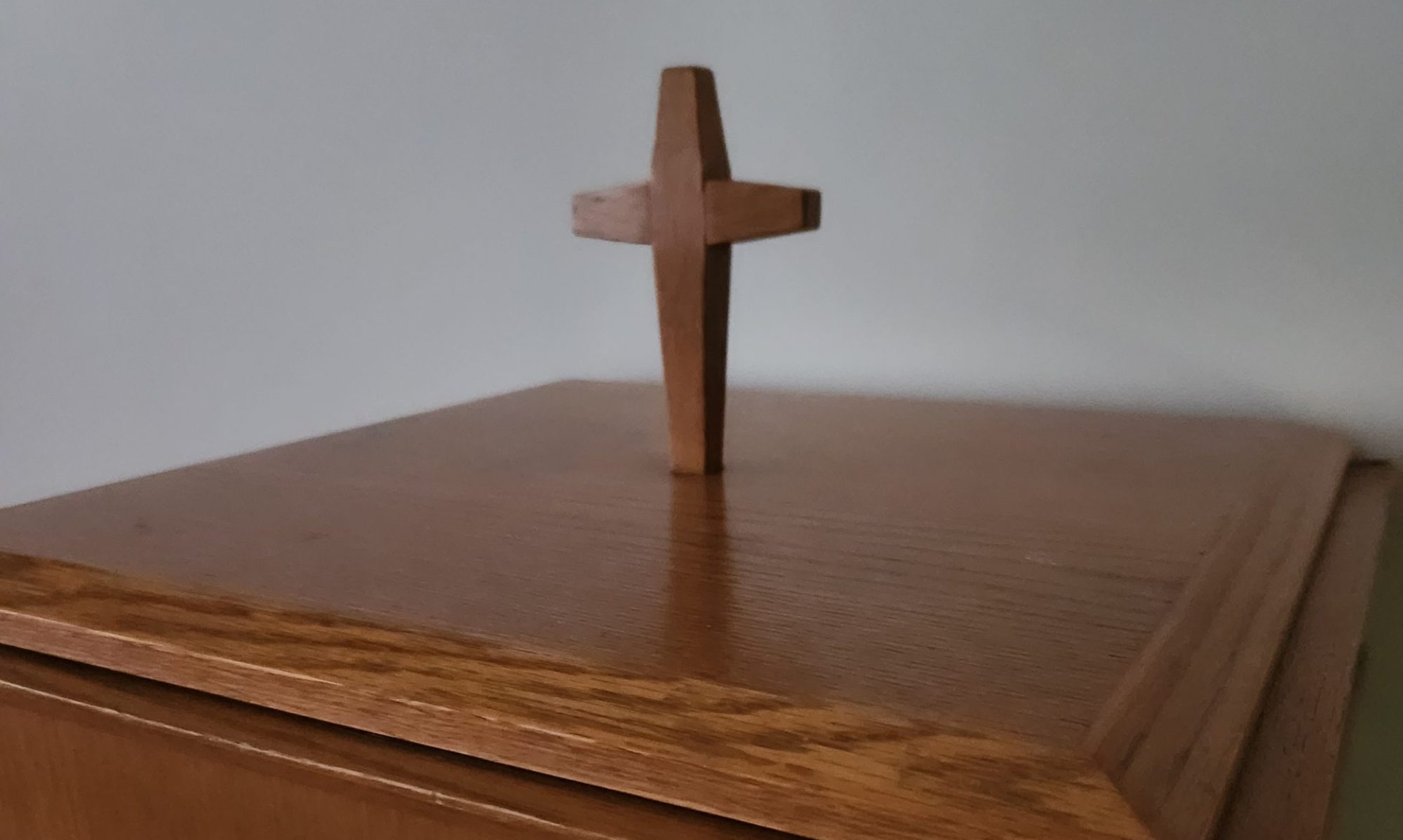October 1, 2023
Our technology was not up and running today, so rather than have you “go without,” here’s a print copy of the Gospel reading and sermon:
Matthew 21:23-32
When he entered the temple, the chief priests and the elders of the people came to him as he was teaching and said, “By what authority are you doing these things, and who gave you this authority?” 24 Jesus said to them, “I will also ask you one question; if you tell me the answer, then I will also tell you by what authority I do these things. 25 Did the baptism of John come from heaven, or was it of human origin?” And they argued with one another, “If we say, ‘From heaven,’ he will say to us, ‘Why, then, did you not believe him?’ 26 But if we say, ‘Of human origin,’ we are afraid of the crowd, for all regard John as a prophet.” 27 So they answered Jesus, “We do not know.” And he said to them, “Neither will I tell you by what authority I am doing these things.
28 “What do you think? A man had two sons; he went to the first and said, ‘Son, go and work in the vineyard today.’ 29 He answered, ‘I will not,’ but later he changed his mind and went. 30 The father went to the second and said the same, and he answered, ‘I go, sir,’ but he did not go. 31 Which of the two did the will of his father?” They said, “The first.” Jesus said to them, “Truly I tell you, the tax collectors and the prostitutes are going into the kingdom of God ahead of you. 32 For John came to you in the way of righteousness, and you did not believe him, but the tax collectors and the prostitutes believed him, and even after you saw it you did not change your minds and believe him.
The word of God for the people of God…thanks be to God
Sermon
The concept of authority has become a big problem for people.
In 1918 when the H1N1 Influenza, commonly called the Spanish Flu, ripped across the globe, everybody in Canada unhappily but obediently wore masks and avoided contact with others – you can even find photos on the internet of people’s pets with masks on! The establishment of the federal Department of Health in 1919 was a direct result of the Canadian epidemic. The authority of those in the know was trusted, almost absolutely!
But when COVID came on the scene in late 2019, only 100 years later, the news was filled with virus-denying, mask-refusing conspiracy theory supporting protestors. No longer was the word of Dr. Hinshaw and the Public Health Agency of Canada good enough for anyone. Thousands of people refused to be vaccinated, causing strife and conflict in homes, and work places, and overloading a healthcare system already pushed beyond all capacity. The authority of those in the know was considered by many to be no longer credible, but rather untrustworthy, and openly suspect.
I think the reason is because over the past 100 years, institutions – whether church, private, public, or government – have proven themselves to be fallible and, in many cases, broken beyond repair. Why? Well, often it’s because the organization’s rules become more important than the people the organization was created to serve. When that happens, rules become abusive. Yesterday’s National Day for Truth and Reconciliation was born out of a need to acknowledge authoritarian and institutional abuses of an entire race of people within this nation.
The concept of authority, who should have it, who shouldn’t, under what circumstances authority ought to be granted or revoked, what to do if authority is over-extended, and what to do if someone with authority is negligent, has all but taken over our court system, our judicial system, and our homes.
And authority is the firebrand topic of today’s Gospel reading. There’s a bunch of officials who, confident in their own authority as representatives of the institution of their religion, question the authority of an outsider rabbi with no formal training and no institutionally-approved credentials. In the world of first-century Temple-centered Judaism, authority rested with priests who were elected to their positions. They were trusted to lead and guide the people, to assist in the cleansing of that which was defiled, and to define clean and defiled, right and wrong, based on the writings in the law and the prophets. They were the ones who wrote the 613 rules in the Torah, and they were the ones who enforced those rules.
All organized religions have a certain degree of institutionalized authority within them; in our own denomination authority is given to presbytery to scrutinize and discipline ministers, elders, and congregation members, and authority is given to the elected members of Session by the congregation, with the expectation that the Elders on Session will provide pastoral leadership and congregational oversight. Both ministers and Elders take ordination vows which include promising to “share in and submit to all lawful oversight therein, and to follow no divisive course.” We all agree to follow the rules in the Book of Forms on how to run this institution called church.
Outside of the courts of the church, we give authority to the Finance Committee to make sound, responsible financial decisions on our behalf. And it all works well as an institutional system, as long as the structure and the rules don’t take precedence over the grace and mission of the church. The love of God, embodied in Jesus Christ, must have authority over even the rules we put in place so that we can work well together.
But from the perspective of the priests, their question to Jesus is completely valid. They have authority, and Jesus does not, as far as they’re concerned. To defend his own authority, Jesus tells them it’s the same authority that John had. Except the priests didn’t recognize John’s authority either, so that’s not helpful at all. It IS helpful to you and me, though – partly because we’ve read ahead and we know how the story ends, and partly because the empty cross tells us who has authority in the meantime. The very Session we have in this church, and the Presbyterian Church in Canada itself, owe their existence to the authority, grace, and love given through Jesus Christ.
We definitely live in a world where the concept of authority has become a problem. And there’s no doubt that authority within any kind of institution, church or otherwise, can be corrupted beyond repair. But I think that’s less likely to happen if the people within the organization acknowledge that the ultimate authority isn’t their particular set of rules or the bylaws of our City, or the laws of this nation. The ultimate authority, upon which all rules, laws, and standards ought to be resting, is the love and grace of God shown in Jesus Christ.
“By whose authority do you do these things?” the priests asked. People are still asking that today. And just as back then, we’d better make sure our authority is Jesus Christ, who, though he existed in the form of God,
did not regard equality with God
as something to be grasped,
7 but emptied himself,
taking the form of a slave,
assuming human likeness.
Therefore God exalted him even more highly
and gave him the name
that is above every other name,
As we join with over 2.3 billion Christians around the world at the table Jesus gave to us, we remember whose we are, and whom we follow. Amen and amen.

